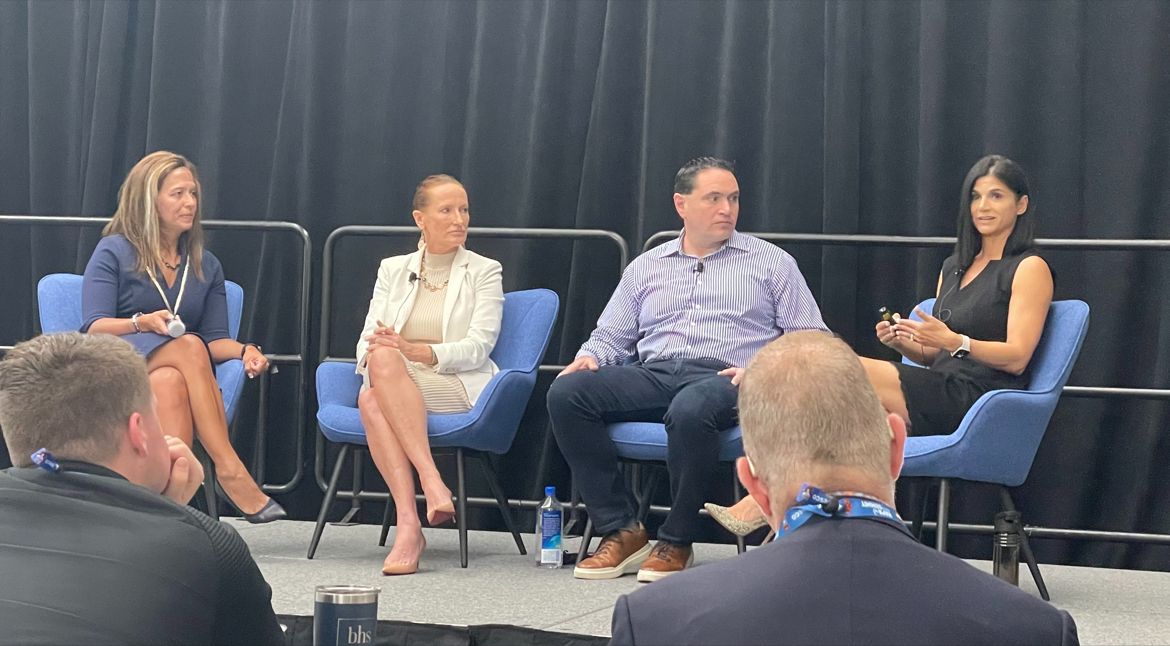"Now what?" asked Tina Wisialowski to attendees during the "After Map: Congratulations! You Won the Plan" session at this year's NAPA 401(k) Summit.

Wisialowski articulated how most advisors look to celebrate a plan being won but overlook the crucial steps to build long-term relationships. Most of those steps are ensuring the proper measures are put into place to protect the client and yourself.
Marina Edwards began the session by detailing the processes and documentation of onboarding a new client. If an advisor were to bring on a new client with much lower fees than they had with a previous advisor, could that past advisor have been giving "crummy" advice? That thought could live in the optics of the documentation. It's something advisors should be mindful of, as it could help bridge the communication from you to your client on what you're doing.
Some of the many challenges facing employers include:
- Rising healthcare costs
- Employee total rewards
- Adapting to workplace changes
- Retirement readiness
- Attracting and retaining talent
- Navigating and maintaining compliance
- A disengaged workforce
- Managing pharmacy costs
Within the session were ways to look at the client experience holistically. A holistic approach includes looking at key parts of the workforce strategy and planning appropriately around it.
You'll want a managed approach for talent planning, recruiting, development and training. For culture, education, financial literacy and communications, an adviser will want to be more engaged with each element. Some elements require a more delicate approach, such as compliance and cyber security which should be handled with a "protect" mindset.
Another posed question to participants in the session was what would happen if a "lawsuit came up?" Are there particular documents you'd rather not be sent to litigators for discovery? If so — be careful of what you put in your client's documentation at all times. Those records could be pulled later and if they were, what story would they tell?
A perhaps unknown tip to many in the audience was detailing how an advisor can actually be engaged by their client's counsel. While it's understood that your client will engage with outside counsel in the case of legal proceedings, you, the advisor, can still be engaged by that counsel. With a "couple letter," you can do a report and send it to counsel, which is followed by counsel sending it over to the client marked "attorney-client privilege." Thus, you can still be engaged with your client.
It's not foolproof in all circuits but should be an option you explore if you feel a document is potentially dangerous in their files.
From After Map, some key lessons learned from ERISA litigation include:
- Create a governance charter document that outlines the fiduciary delegation, formal acceptance and monitoring process.
- Conduct annual fiduciary training and document the attendees and materials covered.
- Document fiduciary detail in the annual audit report (last date of fee benchmarking, share class review and plan use of revenue sharing.
- Document fund structure rationale as a clear, deliberate fiduciary decision (active vs. passive); watch for overlapping funds and proprietary funds.
- Credit revenue sharing back to participants (vs. paying plan fees); evaluate funds' "net expense" after revenue credits are applied.
- Carefully evaluate any proprietary fund use; revenue sharing, indirect compensation, performance and share class.
- Consider adopting fiduciary policies to document processes: investment, fee, cyber / fraud, or education. If policies are adopted, they MUST be followed.
- Carefully draft employee communication to not overly promote "improved" or "lower cost" language.
The session featured:
- Jeffrey Cullen, CEO, Strategic Retirement Partners
- Marina Edwards, Founder, Marina Retirement, LLC
- Renee Scherzer, CPFA®, AIF, Principal, 401K Resources
- Tina Wisialowski, QPFC, CRPS, Corporate Retirement Director, Financial Wellness Director, Morgan Stanley

